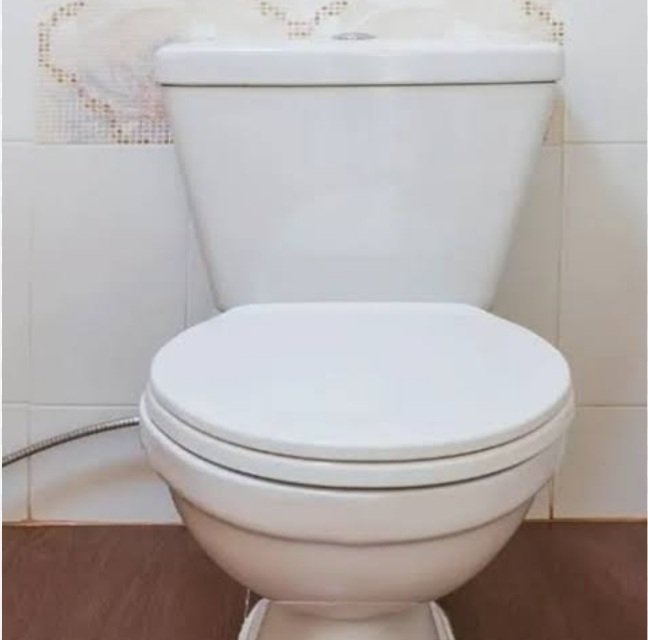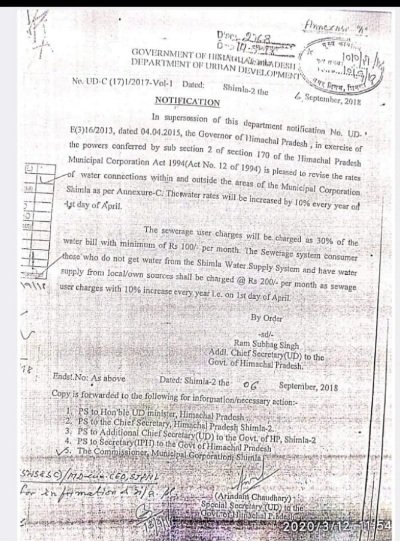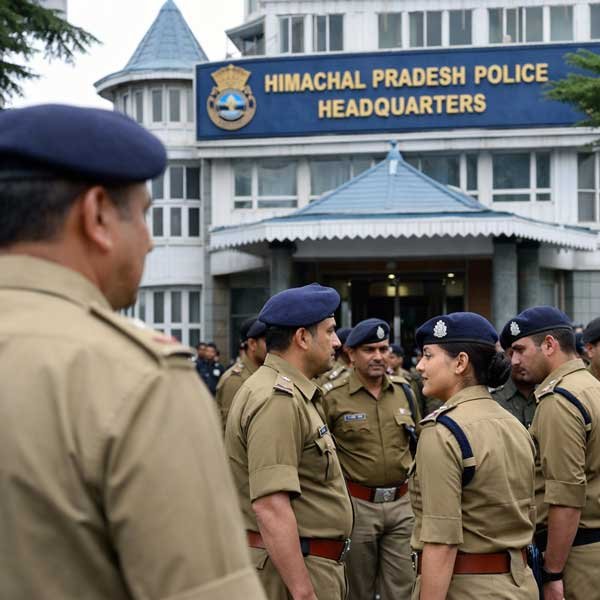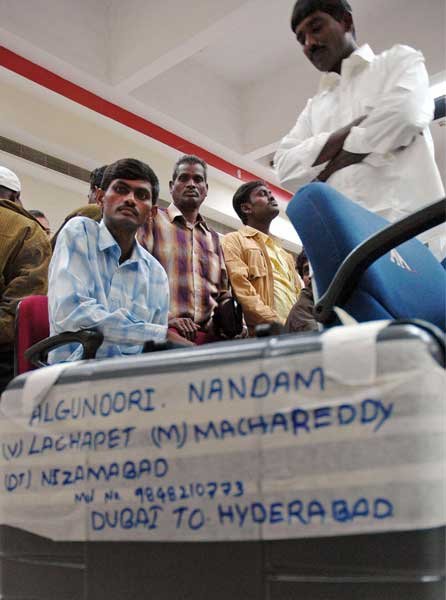
Shimla, Oct 9,
In recent weeks, social media has been abuzz with memes and posts targeting Himachal Pradesh Chief Minister Sukhvinder Singh Sukhu and his government, alleging the imposition of a so-called “Toilet Tax.” This narrative, pushed particularly by the opposition BJP and its IT cell, gained traction during the Haryana elections, with memes mocking the Congress government for imposing a Rs 25 tax for toilet usage. The memes, often in the local dialects of Arki and Dhami, portrayed voters as gullible, suggesting they were being easily misled by the government.
These viral posts, produced with high-quality editing, featured a person dressed in saffron attire, symbolizing a strong Hindu identity, and were believed to have been widely circulated in late September. Watch https://www.facebook.com/share/r/fRTGnrY4LVxWzY27/
They were inspired by a notification from the Himachal Pradesh government mentioning a Rs 25 charge for certain consumers using the state’s sewerage system but not connected to the municipal water supply.
Although the state government covers both water and sewerage charges for most urban areas, several towns rely on independent water sources. The timing of the notification, coming just before the Haryana elections, raised suspicions of a politically motivated campaign. Some reports suggest that an inquiry has been ordered by Deputy Chief Minister Mukesh Agnihotri to investigate whether the leak of the notification was a genuine mistake or part of a larger conspiracy.
At the core of this controversy is the government’s and their PR team failure to manage a relatively minor administrative issue before it spiraled into a major political debacle.
Unveiling the truth about the “Toilet Tax”
It is important to clarify that this tax is not a new imposition by the current government. The origins of the “Toilet Tax” trace back to the tenure of the previous BJP government. In fact, BJP MLA Sudhir Sharma, who served as Urban Development Minister in the Virbhadra Singh-led Congress government, played a pivotal role in introducing sewerage charges, which were later dubbed the “Toilet Tax.” The original move came from bureaucratic recommendations during the Congress government, and a notification was issued that allowed the levying of sewerage charges up to 50% of water bills in Shimla.

This decision was met with opposition, particularly from the Shimla Nagrik Sabha during the CPI(M)-led Municipal Corporation’s administration. Under mounting pressure, Sudhir Sharma reduced the sewerage charge to 35%. However, during the subsequent Jai Ram Thakur-led BJP government, the tax was further reduced to 30%, and a Rs 200 charge was introduced for residents using the sewerage system without being connected to the municipal water supply.
This history makes it evident that the “Toilet Tax” is not a new policy but rather one that has persisted across multiple governments. The introduction of this tax was largely driven by conditions imposed by international financial institutions such as the World Bank, Asian Development Bank (ADB), and NABARD, which required user charges as part of their funding agreements for infrastructure projects, including sewerage systems in urban areas.
One of the significant administrative failures across both BJP and Congress governments has been the inability to separate water and sewerage charges. As water tariffs increased, sewerage charges also rose automatically, creating a larger burden on consumers. Interestingly, the Rs 200 “Toilet Tax” introduced by the Jai Ram Thakur government in 2018 was never properly enforced, and the current government chose to abolish it just before the Haryana elections in an attempt to quell the growing controversy.
Political fallout and misinformation
The controversy escalated when the issue was picked up at a national level, with BJP leaders and senior officials amplifying the accusations. BJP National President retweeted the matter, and Finance Minister Nirmala Sitharaman made public comments about the “Toilet Tax” on Haryana’s polling day. Former Himachal Pradesh Chief Minister Jai Ram Thakur also brought up the issue during his election rallies. By the time Chief Minister Sukhu addressed the matter, the damage to the Congress party’s reputation had already been done.
In an attempt to control the narrative, the Himachal Pradesh government issued a revised notification, removing sections related to the Rs 25 charge. However, the public perception had already shifted, with delayed salaries and pensions compounding the frustration among state employees and pensioners. Furthermore, controversial remarks made by Rural Development Minister Anirudh Singh and Vikramaditya Singh, which targeted specific communities, alienated key voter groups in Haryana.
The origins of the controversy
Political observers point out that contrary to the BJP’s allegations, the Rs 200 “Toilet Tax” was actually introduced by the Jai Ram Thakur-led BJP government on September 6, 2018. The tax, intended for urban areas, was set to increase by 10% annually. However, this fact was conveniently overlooked by BJP leaders during their campaigns.
As the dust settles, the real story behind the “Toilet Tax” is coming to light. What was initially a small administrative policy has now become a political tool, manipulated by both parties to their advantage. While the current Congress government has taken steps to address the controversy, the political impact remains, revealing the fine line between governance and perception.

The HimachalScape Bureau comprises seasoned journalists from Himachal Pradesh with over 25 years of experience in leading media conglomerates such as The Times of India and United News of India. Known for their in-depth regional insights, the team brings credible, research-driven, and balanced reportage on Himachal’s socio-political and developmental landscape.











